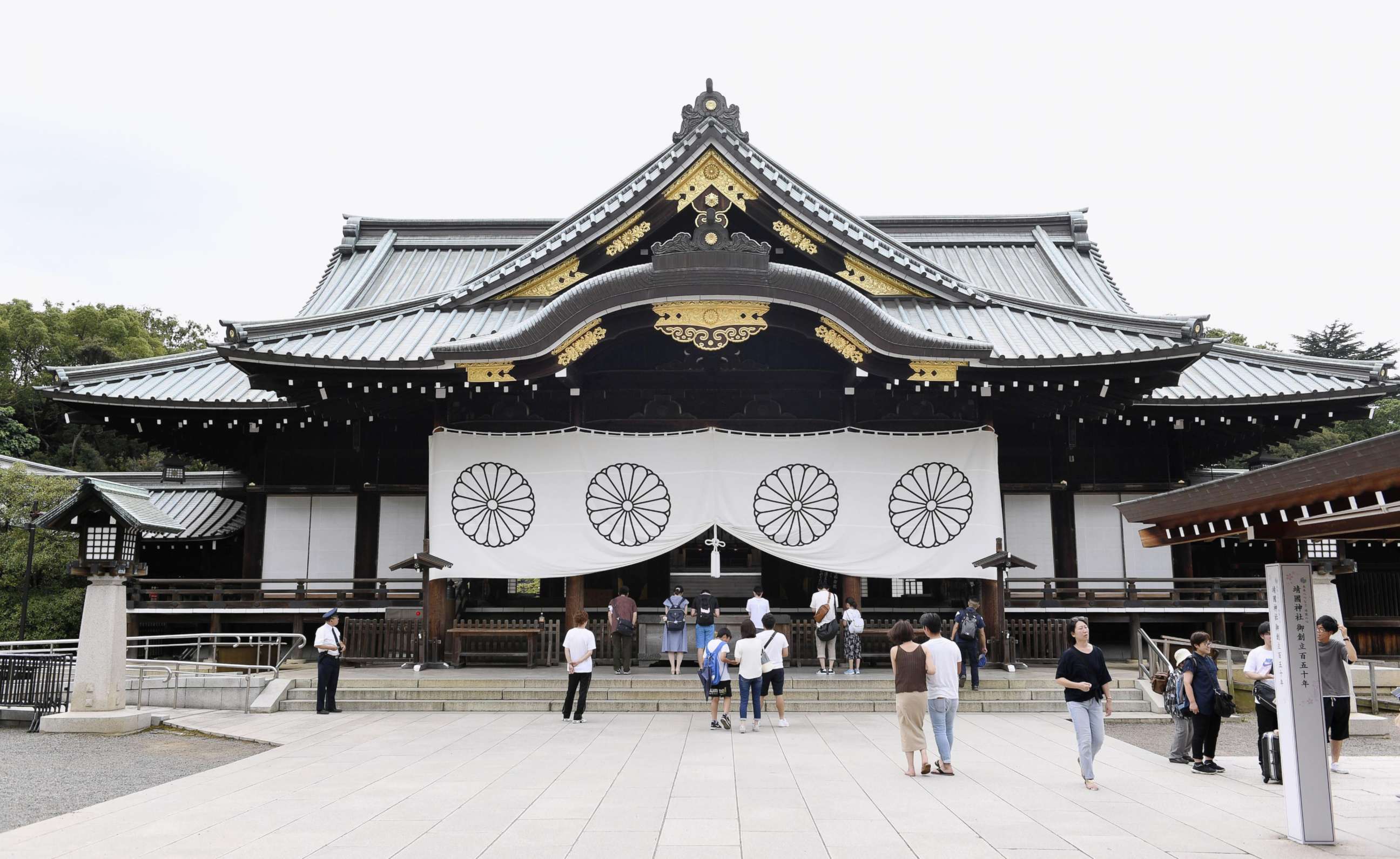British military rugby team sparks controversy with 'naive' photo at World War II shrine in Japan: Report
“It was very, very naive,” said Commander Arty Shaw.
A British military rugby team who was "very naive" for visiting a controversial military shrine in Japan has reportedly decided to skip such tours in the future.
The U.K. Armed Forces Rugby team is in Japan for the 3rd International Defence Force Rugby Cup, which overlaps with the Rugby World Cup.
The team has been keeping its fans updated on their progress in the tournament with photos and videos on social media. It was a photo of one of their down-time activities posted on their Twitter account, however, that caused the backlash.

The posts in question have now been taken down, but not before the British ambassador to Japan intervened, according to the Times, which first reported the story.
“It was very, very naive,” Commander Arty Shaw, who organized the visit, told the Times. “The ambassador had a word or two, so we’ve been told not to visit any more shrines, just in case.”
The team went on a “cultural visit” to Tokyo Tower and the Yasukuni shrine, on Sept. 13, according to a Twitter post from a member of the team that has since been taken offline. The photos show the team posing in front of the complex’s main Yasukuni Shrine.
Some Twitter users were positive, and one even thanked the rugby team for their trip.
Others called the team out, however, for losing sight of the some of the history associated with the shrine.
“Are you aware of the Yasukuni shrine controversy?” asked one.
“Did anyone inform you that Class A war criminals from WW2 have been enshrined there and it's now the symbol of far-right historical revisionists denying war crimes such as Nanjing Massacre?”
“Are you aware of the Yasukuni shrine controversy? Did anyone inform you that Class A war criminals from WW2 have been enshrined there and it's now the symbol of far-right historical revisionists denying war crimes such as Nanjing Massacre?”
The current shrine was established toward the end of the 19th century to “commemorate and honor the achievements of those who dedicated their precious lives to their country,” according to the shrine’s website.
In the complex, 2,466,000 people are honored and treated as “divinities.”
But among these are 14 Japanese soldiers convicted of war crimes by the International Tribunal for the Far East following World War II. Japanese Prime Minister Shinzo Abe skipped a visit to the shrine this year on the anniversary of the Japanese surrender.
Visits by previous prime ministers have provoked angry reactions from South Korea and China.
“What the museum can offer on a personal level is a fascinating journey from their military history to where they are now,” Commander Shaw told the Times. “But we didn’t realize the sensitivity [for] specific nations in particular. We know now.”
The British team beat France on Sept. 19 to make it into the finals of the world cup. They will play the Republic of Fiji Military Forces Rugby Team on Monday, Sept. 23.
The U.K.’s Ministry of Defence describes the competition between various countries’ military teams as a way to “facilitate mutual understanding and exchange among armed forces.”
Editor's note: An earlier version of this story incorrectly stated the U.K. Armed Forces Rugby team had apologized for the visit to the shrine.




